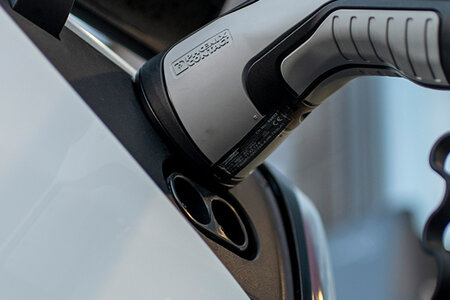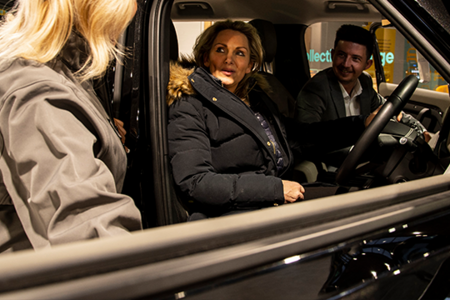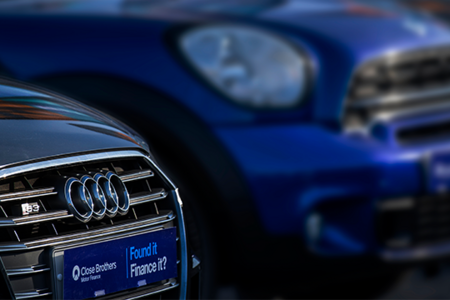The pandemic has prompted a spike in commuters opting to drive to work instead of using public transport, according to new study from Close Brothers Motor Finance. Well over a third (37%) of UK adults confirmed their preferred method of travelling to work is by car, compared to just one in ten (12%) who favour public transport, and the same number (12%) would rather walk. Just 4% choose to cycle to their place of employment.
The research, which examined commuters’ attitudes towards travelling in a Covid-19 world, also found that 38% admitted their preferred method of commuting has changed due to the pandemic, resulting in them choosing to drive over getting on public transport including bus, train, tube, boat, or tram.
The data comes as employees up and down the country continue to head back to their workplace, whether that’s on a full-time basis or hybrid and flexible working, following the Government lifting Covid-19 restrictions. Along with the pandemic, a new awareness of germ transmission on public transport seems to have emerged, with many opting to keep hand gel and masks on hand when travelling. The research also found that more than one in five (22%) blamed their choice of commute on not wanting to mix with people, whilst one in seven (14%) said they fear public transport. Health benefits (28%), ease (26%) and cost (22%) also made the list.
Reasons behind why UK adult’s method of commuting has changed:
1. It's healthier - 28%
2. It's easier - 26%
3. It's cheaper - 22%
4. It's quicker – 22%
5. I don't want to mix with people - 22%
6. It's better for the environment - 20%
7. It's more enjoyable - 20%
8. It's more cost effective - 19%
9. It's more flexible - 18%
10. I fear public transport - 14%
More people opting to drive to work has manifested into high demand for cars, which given current manufacturing shortages, is wreaking havoc across the motor industry, driving up prices significantly. The SMMT revealed the new car sales grew by 20% in the year to August this year compared to last.
While the pandemic has brought in new business for those seeking to avoid public transport, the ripple effect of lockdowns continues to put pressure on car dealers, who are struggling with supply and demand issues.
“We’re seeing a huge influx of consumers who want to buy cars right now, after a market lull during the pandemic,” said Seán Kemple, Managing Director of Close Brothers Motor Finance.
“The ripple effect of multiple lockdowns across the globe and ‘pingdemic’, continues to cause issues for manufacturing. This domino effect means customers may not have the large choice of new vehicles they once did, particularly at a time where they might want to avoid public transport. For buyers hoping to have more luck in the used car market, they could face bumped-up retail prices as demand soars, with some second-hand models selling for more than their original value.
“For buyers looking to purchase a vehicle in the months ahead, it’s worth speaking to their local dealer to find out how their plans may be impacted, and whether they’ll face a particularly long waiting time for their vehicle choice. Their dealer will also be able to discuss alternative choices, finance plans and answer any questions they have.”
How to get the car you want: 5 things to consider when buying a car
Consider delays
For most people, the last thing they think about when buying a car is manufacturing. But there’s a global semiconductor shortage and it’s having a huge impact on delivery times for new vehicles. Semiconductors are vital for the car industry, in use for everything from power steering to parking sensors, so the shortage is creating a huge domino effect. It doesn’t look as through the shortage of microchips is going to end anytime soon, and almost certainly not in 2021. So, if you’re shopping around for a new car then it’s worth speaking to your local dealer to find out how your plans may be impacted, and whether you’ll face a particularly long waiting time for your car choice.
Be flexible
The chip shortage also means that modifications to your ride will only delay the process further, with reports of people waiting up to a further 12 months for optional ‘extras’ to be added to their car. While you may be in a position to purchase your dream car with all the bells and whistles right now, it’s worth considering that you might have to compromise and lose the extras. Flexibility is key. Being able to recognise that the motor industry won’t recover fully for a while, and compromising on optional parts that you want, will only ensure that the keys are in your hands more quickly.
Shop around
Looking at the used car market could be a smart move in the current climate. Research from our Close Brothers Motor Finance Britain Under the Bonnet Report found that 38% of drivers are now more likely to buy a used car, after the pandemic and Brexit causing economic uncertainty. The microchip shortage is just another spanner in the works. With no time frame on how long this shortage will last, buying second-hand is something to consider if you’re in need of a car. With extensive research, you can likely find a similar model to the one you’re after. Make sure to assess the value of the vehicle, whether it needs repairs, how long you’re likely to drive it for, and how much depreciation will affect value if you’re planning to sell it on at a later date.
Look at your options
Well over a third (38%) of drivers are more likely to delay buying a car due to the economic uncertainty caused by Covid-19 and Brexit. While it may not be possible to make such a big purchase outright at the moment, there are plenty of financial options to make owning a car possible. A conditional sale, for example, is an option if you want to own your vehicle at the end of the agreement. There’s usually a deposit to pay, then payments are spread out over the next few years; the length of the plan depends on what you agree to. Contrastingly, with a PCP agreement, the lump sum payment at the end of the agreement allows you to lower your monthly payments, or to buy a more expensive model, with the option to part-exchange the car into a new PCP at the end of your contract rather than pay the lump sum. There are plenty of options to explore, each suited to work for different circumstances and needs. Speaking to a car dealer, or researching your finance options online, will help you to identify which choice is best for you.
Go green
Considering going electric with your vehicle could be a decision that’s progressive and forward-looking. With the government imposing a ban on the sale of any new petrol of diesel cars from 2030, buying an electric car could be beneficial for both yourself and the environment. If you’ve just bought a brand-new petrol-run car, then don’t panic - current owners will be able to keep their cars on the road. But with the motor landscape changing, it may be time to get on board if you’re considering a new purchase. The semiconductor shortage is having an impact, but if you’re keen to switch to electric then it’s worth considering an electric car even if it means playing the waiting game until it’s made. Exploring your options to go green now, whether that’s hybrid or fully electric, will set you up for the future of driving; after the initial outlay expenses, you’ll save a fortune in petrol and diesel charges.
Protect yourself
The pandemic has shown us the unpredictability of our economy, and the risk that can have on our personal finances. Generally speaking, if you don’t want to buy your car outright, then taking out a car finance agreement can be less risky than a loan. Motor finance companies aim to support you with quality concerns after your purchase; but the most important element is that the finance isn’t secured on your home, unlike some loans. That means that if you get into financial difficulties, the only thing at risk is the vehicle itself.






